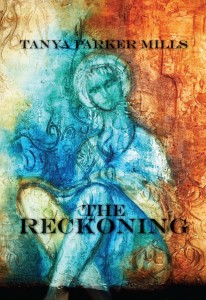Present word count of WIP: 19,405
I’m a bit miffed that, after such a good start, my son’s sudden end-of-semester homework requirements took me off-track. After four days in a row of knocking off 1,000+ words a day, I was only able to write 265 words on Wednesday. Thursday and today were even worse. I’m hoping that, after dinner tonight, I can knock out 1,000+ words and update my word count. The bad news is, he’s got another big assignment due next week. I’ll work around it somehow.
In the meantime, I promised to share some advice for writers received in an email from Seth Godin at the Domino Project.
He sent it in two batches. The first was written by him six years ago and basically consists of these five ideas about the state of publishing: (My comments follow in blue)
1) “Book publishing is an organized hobby, not a business.”
His point was that authors and publishers, alike, don’t get much for all their efforts…they’re doing it for love more than money. But there is a certain cachet attached to having written a book or being in the publishing industry. He also noted that writers have an opportunity to “spread an idea and a brand far and wide.” So, if you want to write a book, you need to think long and hard about your true motivations.
2) “The timeframe for the launch of books has gone from silly to unrealistic.”
I agree that a world that once moved slowly now changes from day to day, so I can see his point that we have to consider carefully the “shelf life” of our ideas or stories. (He writes nonfiction, so this is more pertinent to him than to me.) Still, it’s a bad idea to try and write what’s currently popular because, if you’re lucky and it gets published three years later, its popularity will most certainly have waned. Write what you feel like writing regardless!
3) “There is no such thing as effective book promotion by a book publisher.”
He immediately adds that, of course, this isn’t true. Look at Harry Potter or Freakonomics. His point, though, is that out of 75,000 titles published six or seven years ago, only about a hundred were effectively promoted. This, of course, is not news to authors. They expect to have to do the lion’s share of their own marketing these days…most of it online. He also points out that blurbs don’t sell books in and of themselves. What is most effective is to have a platform already–with thousands or tens of thousands of people who care about what you have to say. That platform can be a popular blog, celebrity status, lots of employees, or a personal relationship with someone who has a huge platform and believes in you.
4) “Books cost money and require the user to read them for the idea to spread.”
His point here is that people hate to part with their money and less and less people, apparently, enjoy reading. So we have two obstacles to overcome. I, personally, am not convinced of the latter. Back in November the president of Goodreads did an interview in which he said they then had grown to 6,000,000 members. That said, I think the REAL challenge is finding a way to get your book to stick out among the hundreds of thousands now being published and self-published each year. Now, that’s hard!
5) “Publishing is like venture capital, not like printing.”
It’s true. Anyone can print a book today. That’s why so many books are being self-published. The big traditional publishers, however, are taking a risk when they sign an author to a contract. They’re investing in that writer. As he puts it, “They invest cash in an advance. They invest time in creating the book itself and selling it…and they invest more cash in printing books.” So, you have to decide: Do you want their advance and expertise (I do)…or do you want total control of your printing?
After sharing these five ideas, Mr. Godin gives this advice:
“Build an asset. Large numbers of influential people who read your blog or read your emails or watch your TV show or love your restaurant or or or…
“Then, put your idea into a format where it will spread fast. That could be an ebook (a free one) or a pamphlet (a cheap one–the Joy of Jello sold millions and millions of copies at a collar or less).
“Then, if your idea catches on, you can sell the souvenir edition. The book. The thing people keep on their shelf or lend out or get from the library. Books are wonderful (I own too many!) but they’re not necessarily the best vessel for spreading your idea.
“And the punchline, of course, is that if you do all these things, you won’t need a publisher. And that’s exactly when a publisher will want you! That’s the sort of author publishers do the best with.”
He’s right, of course, but that’s not to say that publishers only publish authors with large platforms. That’s simply not true. Why? Because they love a good story as much as the writer does, and if it’s good enough, they’ll publish it. Oh, you’ll still have to do the lion’s share of the marketing, but I think it will be a good bit easier if you’re traditionally published.
That was only his first batch of advice and it was six years old! His second batch was from five years ago and consists of 19 different points. I think I’ll post about each in turn every Friday over the next several months.
Originally posted 2012-01-13 17:06:45.
Like this:
Like Loading...



